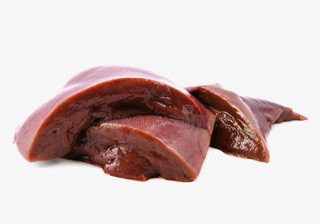

Calves liver is a nutritious food for dogs, providing them with protein, B vitamins, and iron. However, it should be fed in moderation due to its high calorie and fat content, which can lead to weight gain.
Calves liver is a complete protein source that supports strong muscles, bones, and skin. It also contains important nutrients like thiamine, niacin, folate, vitamin B6, B12, and riboflavin, as well as iron and zinc. These nutrients are essential for metabolism, energy production, immune function, wound healing, and fluid balance.
Excessive consumption of calves liver can lead to unhealthy weight gain in dogs due to its high calorie and fat content. It’s important to feed it in moderation and use fresh liver from a reputable source.
Calves liver can be boiled, grilled, or fried without seasoning and chopped into small pieces or ground up for dogs to eat. Freeze-dried or dehydrated liver can also be given as an occasional treat. Raw feeders can include calves liver in their dog’s diet, but should ensure it’s fresh and purchased from a reliable source.
Calves liver is a type of organ meat that is rich in nutrients such as iron, vitamin A, and B vitamins. It can be a healthy addition to a dog's diet in moderation, as it provides essential nutrients that support overall health. However, it should not be the primary source of protein in a dog's diet and should be fed in small amounts as a treat or supplement to their regular food.
The risks of feeding calves liver to dogs include the potential for vitamin A toxicity if fed in large amounts over a prolonged period. This can lead to bone and joint pain, dehydration, and even death in severe cases. Additionally, calves liver may contain harmful toxins or bacteria if not properly cooked or stored, which can cause gastrointestinal upset, vomiting, and diarrhea in dogs.
In extreme cases, if a dog has consumed a large amount of calves liver or is showing signs of vitamin A toxicity, it is important to seek veterinary care immediately. Treatment may involve supportive care, such as IV fluids and medications to manage symptoms.
Safer alternatives to calves liver include lean meats such as chicken, turkey, or beef, as well as fish or eggs. These options provide similar nutrients without the risk of vitamin A toxicity. A serving idea for calves liver may be to cook a small amount and mix it with your dog's regular food as a special treat.